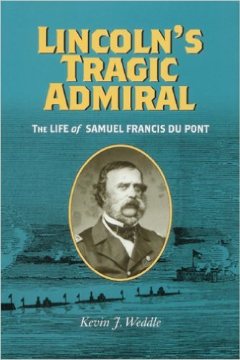Dr. Kevin J. Weddle Bio

Colonel (Retired) Kevin J. Weddle, Ph.D. is Professor of Military Theory and Strategy at the US Army War College, Carlisle Barracks, Pennsylvania. He is a native Minnesotan, graduate of the U.S. Military Academy at West Point, New York, and served 29 years as a combat engineer officer. Throughout his career he worked in a variety of command and staff positions in the United States and overseas and he is a veteran of Operations Desert Shield and Desert Storm and Operation Enduring Freedom.
Colonel Weddle’s assignments included service as a platoon leader, assistant battalion operations officer, company executive officer, company commander and tours of duty at West Point, Germany, the Defense Intelligence Agency, and the Pentagon. He also served as operations officer for the 555th Combat Engineer Group, battalion commander of the 299th Engineer Battalion, 4th Infantry Division, and was selected for brigade command before joining the US Army War College faculty. At the War College he was the director of the Advanced Strategic Art Program, served as the Deputy Dean of Academics, and held the General Maxwell D. Taylor Chair in the Profession of Arms. He has also earned the Army War College’s Excellence-in-Teaching Award.
He has led numerous military and civilian groups to battlefields in the United States, Europe, and the Mediterranean, including Gettysburg, Antietam, Grant’s Overland Campaign, Vicksburg, Saratoga, Normandy, Dunkirk, Ypres, Agincourt, Waterloo, the Somme, Gallipoli, Sicily, and Anzio.
Colonel Weddle holds masters degrees in history and civil engineering from the University of Minnesota and a Ph.D. in history from Princeton University. He has written numerous articles for popular and scholarly journals and his first book, Lincoln’s Tragic Admiral: The Life of Samuel Francis Du Pont (University of Virginia Press, 2005), won the 2006 William E. Colby Award and the Army War College’s faculty writing award, and was runner up in the Theodore and Franklin Roosevelt Naval History Prize competition. He is currently writing a strategic history of the Saratoga campaign for the Oxford University Press. He is also a licensed professional engineer.
He is married to the former Jean Buechner of St. Paul, Minnesota and they have one daughter, Anne.

This is the book's description from Amazon's website:
Once revered as one of the finest officers in the U.S. Navy, Rear Admiral Samuel Francis Du Pont is now, when remembered at all, criticized for resisting technological advancement and for half-heartedly leading the disastrous all-ironclad Union naval attack on Charleston. Although his reputation appeared unshakable after he won the first major Union victory of the Civil War in South Carolina, the failed attack on Charleston brought his career to an abrupt end. Relieved of his command, he was also maligned in the press. In Lincoln’s Tragic Admiral: The Life of Samuel Francis Du Pont, Kevin J. Weddle challenges this reduction of Du Pont’s legacy, combining new and known sources to uncover a thoroughly modern, though flawed, Du Pont.
Despite the fact that Du Pont’s name has become intertwined with the ironclad due to the catastrophic battle that brought shame on both the man and the machine, Weddle reveals that the admiral was the victim of a double irony: although Du Pont championed technological innovation, he outspokenly opposed the use of the new ironclads to attack Charleston. Only when his objections were overridden did his use of these modern vessels bring his career to a tragic end. Weddle exposes this historical misunderstanding, while also pinpointing Du Pont’s crucial role in the development of United States naval strategy, his work in modernizing the navy between the Mexican War and the Civil War, and his push for the navy’s technological transition from wood to iron.
In his examination of key documents from Du Pont’s life and career, Weddle unveils the life-long partnership that Du Pont shared with his wife and confidante, Sophie, who served as an immediate counsel to many of his decisions, while also tackling larger historical questions such as civil-military relations, attitudes toward slavery, innovations in military strategy and organization, and the introduction of new military technology in wartime. Both enlightening and moving, Lincoln’s Tragic Admiral will appeal to scholars interested in American, technological, and military history, as well as the general reader interested in the Civil War.